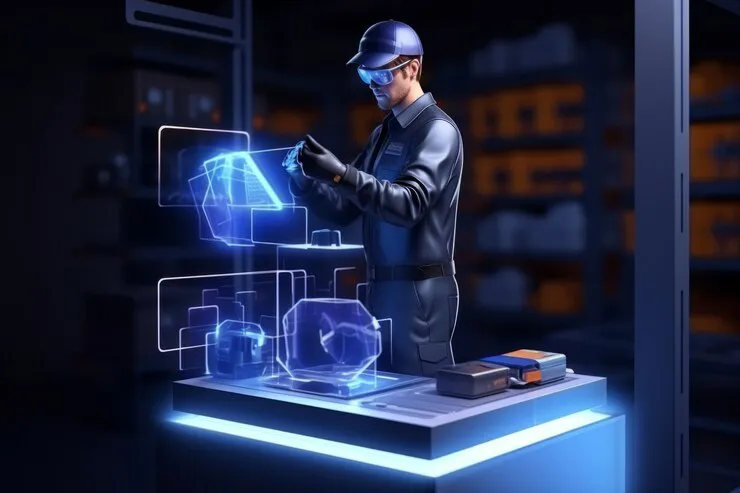There were times in which the very rich owned horses, then later moved to chariots. As things started advancing, bicycles were the next big thing, before you could know it, it was the motorcycles, tricycles and cars soon followed and as we speak humans are already getting bored of all this, they just want to fly. Or, I am forgetting to tell you a lot are in their inventions labs looking for possible ways to activate a teleporting machine.
This is technology for you. Hand over a chariot to a man in the city and no matter how expensive you may assume it to be, he will turn it down for a medium size car. You may think he is crazy, but the roads don't fit chariots anymore. In the last two decades, we have seen a technological shift like never before. Science fiction has become real, you just have to take it or leave it.
Speaking of which, the inception of cryptocurrency and decentralization through blockchain technology has been misunderstood by many. You know, the idea by many that decentralization sprouts up to combat the centralized systems. It depends on how you define the word 'combat'; either to fight or help progress a system. The latter to me is the better way to put this through. The emergence of decentralization must be well understood, there was a pending challenge in technology about borderless transactions, transparency in business, fair distribution and allocation of interest which led to the development or should I say 'advancement upon an old system', this is not a fight, it's the needed progress.
When I see a lot of centralized bodies trying to fight the needed advancement, it's more of a question of, how okay are you for people to get stuck in an old pattern? Has this technology actually shown the needed signs of improvement upon the former, if yes, what are its current errors or lapses and how can be develop it much better. The idea that cryptocurrency is used to fund illegal activities like wars and many others is to me more of a cover up story by those who see blockchain technology as a threat to centralization. Come on, these acts have been in existence before blockchain inception and as a matter of fact, no matter how good a technology is, when it falls into wrong hands you should expect anything. We have seen people use cars to get involved in stealing, even horses in ancient times were used as war tools.
It is not combat, it's class
As I earlier said, the roads no longer fit the chariots no matter how expensive it may be. We have to learn from this. We have seen several technology challenges by centralized systems when it comes to data inaccuracies, data insecurities, compromised platforms, limited businessing, delayed transactions, unfair rewards sharing and many others to add to it. Should these things not be tackled? If one should say no, it simply means he is more of a fan of illegality.
The chariot was a non-flexible system of transportation, having to involve many bodies to scale. We have seen the reverse in cars, providing convenience and even covering more distance than the former. Have the horses quarreled about this? I have not interviewed any of them yet the facts remain, it has been outpaced and has to bow out. Things expire for the new to emerge, that's why we have the word 'latest', who knows what awaits after blockchain technology?
How do we move from here when the future is yet to be fully embraced? The aim of technology has always been to make things easier, efficient and effective. I don't know what it means for you to undergo a borderless business, the business floor is open for everyone, one of the ways to use and curb lots of regional poverty experiences. We are seeing inflation beating into the fiat currency, depreciating its value against resources every year. The debt pile keeps increasing, will it ever be paid off? What is the strategy to use and resolve it? Printing more money means it loses more value.
It's a pity that in this modern era, a large percentage of the world is in debt. I know a lot may feel business will have to leave their hands. Why should money be stuck in a few hands, is the 90/10 rule fair? Sometimes we think the 90% are lazy and the 10% are smart, yet in must tell you it goes beyond smart, caucus businessing needs to be curtailed for a lot to see the limelight. Decentralization has brought a smart way to get everyone along, solving a problem that has been pending for hundreds of years and here are people misunderstanding the whole scenario.
I see the world currently stuck in an old system awaiting massive adoption of the next big thing to move the economy in the right direction. Centralization indeed has played its part while it lasted, the introduction of decentralization is more of a handshake to improve upon what has already been built to fit the present world situation. This is not a game of 'two tigers cannot live on the same mountain', rather is more of handing over power from the predecessor to its successor.
To conclude, let me add, a delay in massive adoption of decentralization due to assumed expectations of being a fight for replacement must be well understood. The inception of a decentralized system has never been to fight, it is meant to build upon what was already in place, that's why it's called technological advancement. We have seen that the current world economy needs help or should I say a relief.
The option of pursuing a transparent economy through decentralized systems is key which could be leveraged to bring about world financial stability. As we continue to debate, the economy is sinking in the process. In the end it will boil down to one final question, will centralized system ever solve these problems on it own or should there be a try of another system, an advanced one built to replace the former?

